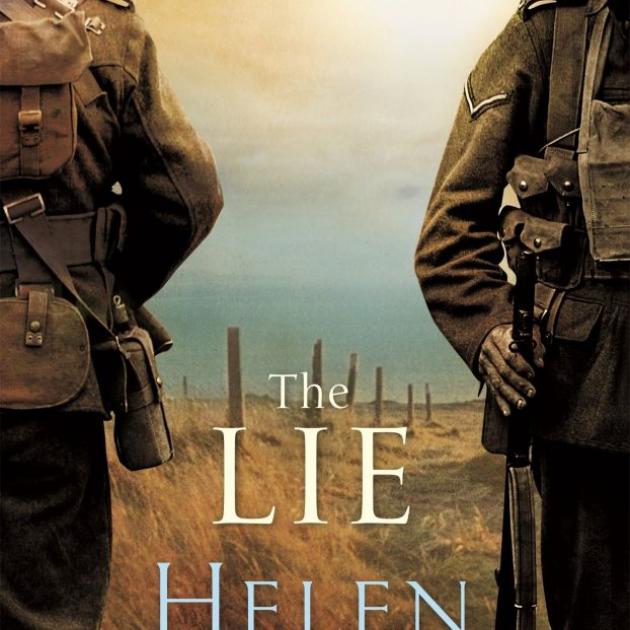
In an interview he gave before dying he was uncompromising in his belief that ''war isn't worth one life''. War, Harry said, was nothing more than ''organised murder''. Life in the trenches in particular was ''hell with a lid on''.
2014 marks the 100th anniversary of World War 1. This book is a powerful reminder of its futility and madness. Beautifully written, it centres around the story of Daniel Branwell, an individual soldier.
Prior to joining up, Daniel worked as a gardener in a small village in Cornwall. His father having died, he'd left school to support his mother financially when she was unable to work as a cleaner in some of the grander homes nearby. In one of these homes lived a motherless pair of children, Frederick and Felicia, whose lives became intimately entangled with Daniel's.
In the war, the fact Frederick was an officer and Daniel a private failed to break their bond. United in fighting a particularly bloody battle, Daniel had to witness his friend's death after doing all he could to save him.
On returning to his village, shell-shocked and broken in spirit, Frederick comes back to haunt him, sometimes at night, sometimes at unexpected times. The book's opening lines reveal the nightmarish visits as he appears coated with mud that is ''...thick, almost oily, full of shit and rotten flesh, cordite and chloride of lime''.
Dunmore conjures up people, incidents, sights in a few vivid phrases. Most powerful are the images, smells and feel of earth. Earth provides a metaphor contrasting the innocence of Daniel the gardener with the lessons war has taught him. No longer clean, ''to be sunned and watered'' but earth ''that should have stayed deep and hidden, but was exposed in all its filth, corrosive, eating away at the bodies that had to lie in it. It breathed into me from its wet mouth''.
Daniel had left a small peaceful village to fight. Like most recruits, he left as a youth who was ''always hungry ... still growing''. But his boyhood freshness is destroyed by war; he comes back to find his mother dead, and the cottage she had lived in taken over by her landlord.
Homeless, he takes refuge in a shelter above the village, beside the home of Mary Pascoe, an ill and reclusive old woman; helping her by growing vegetables, tending to her chickens and a goat. When she is dying and she asks him to bury her on her land he does so carefully and respectfully . After all, he is fresh from the trenches where bodies were disposed of daily with little ceremony. He knows of no-one who would want to come to her burial and ''after a few days it was too late to tell anyone''.
The rules of war, however, don't translate easily to the rules of peace. Daniel has to live with his lie and its consequences.
Although the lie of the book's title is one of omission rather than a planned evasion, its consequences are severe.
This is a grim book but there are lighter moments. Daniel is a complex character, fiercely intelligent and independent and memories of his former life provide snatches of the poetry he loved. As he reflects on shared childhood moments with Frederick and Felicia you find
Dunmore is as skilled at evoking pleasure as she is at pain, when, for example, Felicia is remembered as ''a poppy or a marigold, some tough, constant little flower that grew by itself on the edge of things''.
He finds Felicia now living alone in her old family home as a young war widow with a baby. A bittersweet relationship blooms between them and even though you know the lie will mean there will be no happy ending, there are plenty of tender moments to savour.
The topic is horrific and some of the content disturbing, but I could see this book being read to or by senior pupils. It would be a splendid antidote to any notions that war is a glorious adventure. And the writing is brilliant.
- Patricia Thwaites is a retired Dunedin schoolteacher.


